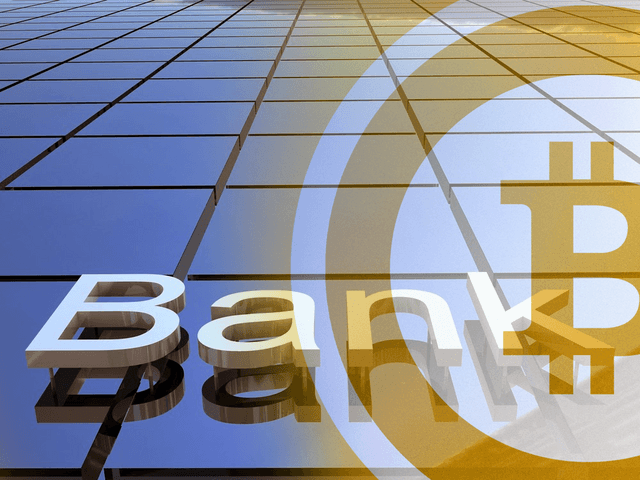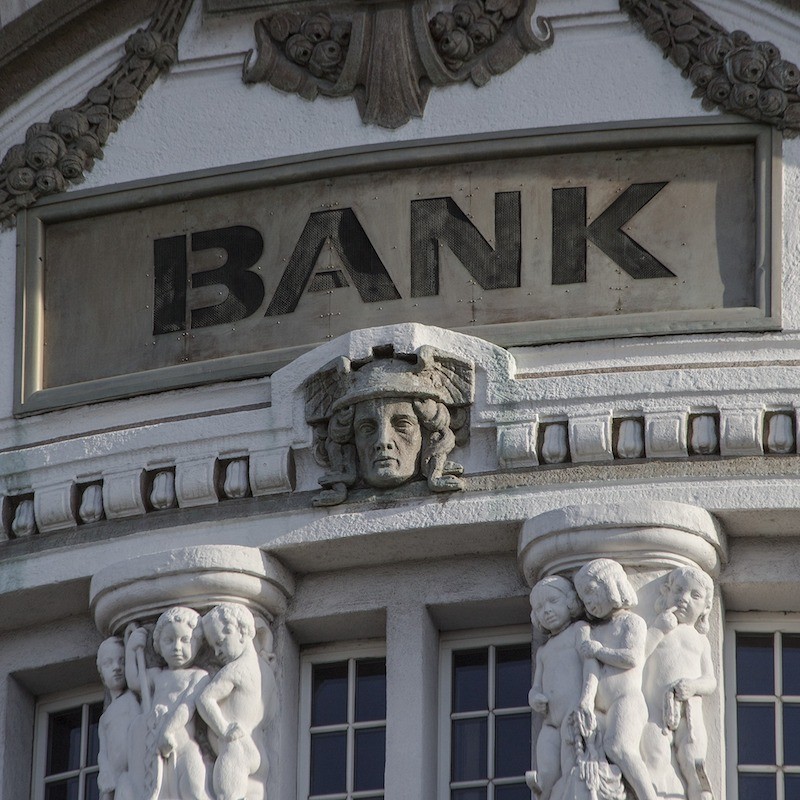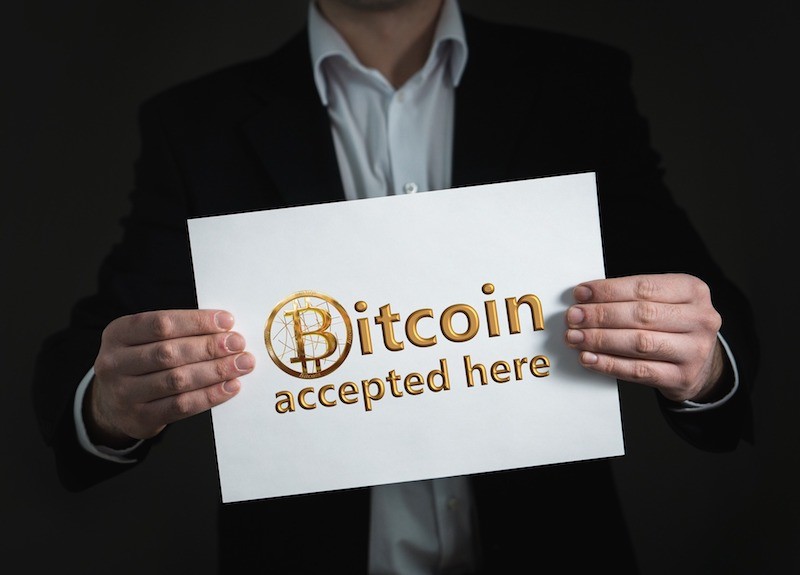
What are the best US banks for cryptocurrency? Recent headlines have announced that many US banks are explicitly banning or limiting the purchase of cryptocurrencies, such as Bitcoin and Ethereum. Capital One released a statement in January which said that they were declining credit card transactions to purchase cryptocurrencies. Wells Fargo was named as a defendant in a lawsuit alleging that the bank sought to block transfer wires to the bitcoin exchange Bitfinex. Bank of America is no longer allowing bank-issued credit cards and lines of credit to be used to buy Bitcoin or any other altcoin.
Customers have been complaining for a few years that banks have covertly denied the use of credit cards to purchase cryptocurrencies. However, the recent announcements made by these major banks represent a significant banking industry position in the US against cryptocurrencies. The stance of these major banks against cryptocurrencies raises many questions. Investors are wondering why these purchases are being banned. They are also wondering which US banks are still allowing purchases of cryptocurrencies. Finally, they are wondering if it is wise to purchase cryptocurrencies using a US bank account at all.
Those seeking privacy are setting up US and offshore LLCs to hold their cryptocurrency bank accounts. On can hold a Bitcoin wallet or other cryptocurrency wallet in the name of the LLC. To set up an LLC to hold your e-currency, call 1-800-959-8819 in the US or Canada or internationally at +1-661-310-2929.

Why Are US Banks Blocking Cryptocurrency?
The responses given by major US banks to questions regarding banks blocking cryptocurrency purchases revolve around volatility. The banks which have chosen to block these purchases claim to have done so as a result of the volatility of cryptocurrencies. They have also cited limited mainstream acceptance and the elevated risks of fraud and loss as being a part of their reasoning.
The basis for the claims made by these banks lies with bitcoin. Recently, volatility in the bitcoin market occurred because a prolonged price correction nearly halved the value of bitcoin. This gave banks a reasonable excuse to impose new restrictions on cryptocurrencies.
Purchasing cryptocurrencies with credit cards comes with added risk for financial institutions. The high volatility of cryptocurrencies means that purchases can be made which may not have enough future value in order to make the repayment. For those watching the cryptocurrency market, the recent shutdowns of credit card purchases for cryptocurrencies were relatively easy to forecast.
Previous actions taken by US banks made it seem likely that they would make purchasing cryptocurrency more difficult. Before the credit card shutdown, major US credit card networks changed the merchant category code for cryptocurrencies. The new merchant category code allowed banks and card issuers to charge additional cash advance fees. These fees are in addition to the fees which are charged by the cryptocurrency exchange.These cash advance fees often have extremely high interest rates, with some banks charging up to 23.99%. These fees represent an attempt by US banks accepting bitcoin to cash in on the popularity of bitcoin and other cryptocurrencies.
The change in the merchant category code for cryptocurrencies was an indicator for forward-thinking investors that a crackdown was on its way. Likewise, there has been significant speculation that U.S. Congress will attempt to further regulate the use of cryptocurrencies. Government regulation over cryptocurrency has been on the rise in the United States recently. It is the goal of the US government to regulate and tax all cryptocurrency transactions which occur within the nation’s borders. Recently, a number of United States regulatory agencies have begun to clamp down on cryptocurrencies. The International Revenue Service (IRS) is now considering cryptocurrency to be an asset. As a result, it is attempting to subject cryptocurrencies to government tax claims. The IRS has even issued John Doe summons for traders of cryptocurrency. These summons are used for reporting purposes. They are used to report on all US holding accounts, including those which are used to hold cryptocurrency.
Other US regulatory agencies have also started to take an interest in cryptocurrency. The United States Security and Exchange Commission (SEC) is trying to subject cryptocurrencies to the same regulations as conventional currencies. One example of this is the SEC attempting to treat initial coin offerings (ICOs) the same way as initial public offerings (IPOs). It is likely that the US will follow the lead of other countries which have begun to regulate cryptocurrencies. There are some of the best ICO countries as some jurisdictions embrace the technology. As their popularity grows, so will the legal statutes.
One government which has attempted to regulate the use of cryptocurrencies is that of the People’s Republic of China. In September of 2017, the Chinese government began a severe crackdown on cryptocurrencies. The government started by blocking initial coin offerings, which are often referred to as ICOs. Closely following the blockage of ICO was the ordering of the closure of all cryptocurrency exchanges in Mainland China. The Chinese government also restricted the travel of anyone operating a cryptocurrency exchange. They revoked the passports of the exchange operators. This made it impossible for them to leave the People’s Republic of China. In mid-April, Shanghai polices even went to far as to stop an event which was being held for blockchain entrepreneurs. These are people who are looking to improve or expand upon the digital transaction ledgers of various cryptocurrencies.
The reasoning that the Chinese government used for imposing restrictions on cryptocurrency is the same as that being used in America. The government argued that it was “protecting” the population from the volatility of cryptocurrencies. It also wanted the ability to regulate and tax transactions being made with cryptocurrencies. It is highly probable that the increased roadblocks to the use of cryptocurrency by major US banks is driven, at least in part, by speculation that there will be a US government crackdown in the future.

Which US Banks Are Left?
A whopping 69.2 percent of the banks which control the American credit card market have imposed regulations which hinder the use of cryptocurrencies. While the majority of US banks seem to be headed in the direction of banning or limiting the purchase of cryptocurrencies, there are banks which are holding out.
USAA, for example, allows Coinbase users to check their bitcoin balances from their apps. They have also invested in the Coinbase exchange. This makes USAA the first major US bank to invest in a cryptocurrency exchange. Despite this, many account holders have reported issues with transactions using cryptocurrencies being blocked.
Simple Bank is another US-based bank which collaborates with most cryptocurrency exchanges. Simple Bank permits buy-sell transaction for cryptocurrencies. Deposits made with Simple Bank are FDIC insured. However, accounts with Simple Bank are only available for individuals who reside within the US. American citizens living abroad are unable to open accounts with Simple Bank.
Goldman Sachs announced on May 15, 2018 the pending availability of tokenized US dollar coins. The coins, known as Circle, provide a solution which enables purchasers to use USDC fiat tokens for payments and trading in the crypto ecosystem. Circle is a full reserve US dollar-backed stablecoin. It is based on the open source fiat stablecoin framework developed and governed by CENTRE. CENTRE , a governed network powered by price-stable crypto assets will provide independent oversight of Circle’s offering.
Goldman Sachs introduced Circle because the bank felt that a “price-stable medium of exchange and store of value was missing” from the existing cryptocurrency market. The bank felt that transactions in volatile currencies create significant issues regarding settlement contracts. Goldman Sachs felt this is the case when compared to transactions “tokenized fiat money” or fiat-pegged crypto assets. The bank doesn’t want Circle to be subject to the inflation and instability associated with other cryptocurrencies. As a result, the bank has pegged the value of the coin to that of the US dollar. However, this pretty much defies the point of using a cryptocurrency. This is because cryptocurrencies were originally designed to create a transparent financial market which is free from government regulation and the influence of big banks.
It is important for US investors to make the distinction between cryptocurrencies and the banks or wallets used to hold them. While a particular type of cryptocurrency may not be regulated by the US government, all US banking institutions most certainly are. As a result, US banks are vulnerable to increased government regulation. This regulation could potentially include blocking transactions using cryptocurrency. It could also include disclosing the names and holdings of US account holders with cryptocurrency to the government. Finally, US accounts which hold cryptocurrency can be garnished or seized as the result of adverse judgments or tax liens.

Why Use An Offshore Bank For Cryptocurrency?
One of the most important reasons why people use cryptocurrency is for financial privacy. Cryptocurrency transactions are anonymous because the names of users are not documented. Cryptocurrency users must, however, open an account with an exchange in order to make trades. They must also store the cryptocurrency in a cryptocurrency wallet or bank account. The location of the bank account or wallet will determine the laws to which it will be subjected.
Many savvy investors are choosing to take their cryptocurrency to a favorable offshore jurisdiction. The vast majority of offshore banks or wallets commonly used for holding cryptocurrency are located in jurisdictions which do not recognize foreign judgments. Information regarding account holders will not be shared so long as the jurisdiction does not have information exchange agreements with the US. Naturally it is important to operate legally and pay taxes where they are due. For the most privacy, set up an Offshore LLC in combination with offshore bank accounts or wallets. To set up an offshore LLC, call 1-800-959-8819 in the US or Canada or internationally at +1-661-310-2929.

